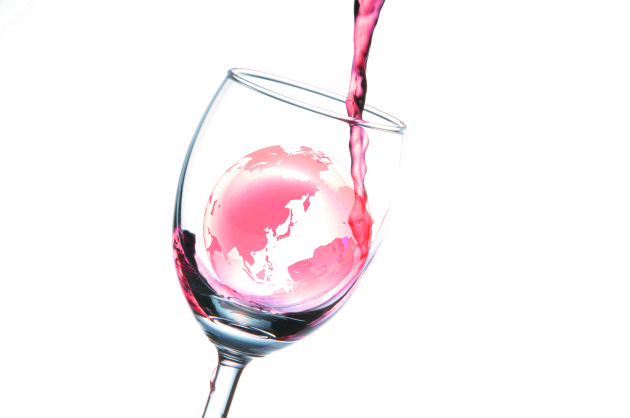
Missed opportunity: What a rise with inflation means for the UK wine trade
Pub landlords and spirits importers will be breathing a sigh of relief this morning, but not the nation’s wine trade – which is looking at an extra £90 million bill in duty next year.
Wine was notably absent from yesterday’s Budget where Chancellor Philip Hammond offered a welcome fillip to the beer, cider and spirits industries by announcing a freeze in duty.
Being overlooked for duty relief is becoming a frustratingly recurring theme for UK wine importers, which have been given a freeze just three times since 2000.
This has provoked the ire of the WSTA which called the decision at best a “missed opportunity” and at worst a “grossly unfair, unjustified and counter-productive”.
“The wine industry is, unfortunately, no stranger to harsh treatment from Chancellors,” WSTA chief executive Miles Beale said. “Since 2012 wine overtook beer as the largest contributor to the public purse through duty payments, and no alcoholic drink has paid more to the Treasury since then. [Yesterday’s] announcement means that only twice since 2003 that Chancellors from either party have showed their support to an industry employing some 190,000 people across the country.”
Beale also referenced the independent analysis from finance firm EY, that a duty freeze would boost rather than deplete the Treasury’s coffers as a result of increased economic activity.
The research found last November’s freeze on wine resulted in £39 million in duty payments between February and August 2018, up 2% on the same period the year before.
The announcement will be particularly difficult to stomach following Hammond’s claim that he wants to back British businesses, through measures like the new UK digital services tax and a cut to rates for business with a rateable value of £51,000 or under.
However, it is unlikely this will apply to businesses in London, as is the case with Vagabond Wines.
"The prejudicial treatment of wine versus other alcohol categories is not surprising,” founder and MD, Stephen Finch added. “Politicians won’t dare punish beer or cider (large domestic production), or spirits (because of whisky and gin), whereas wine is not a big domestic production business yet. And, I suspect, politicians view wine as being the preferred drink of those ‘who can afford higher rates’."
Bob Lindo, founder of Cornwall's Camel Valley estate said: "I fear wine was targeted, because most of it is imported. It would be nice if it at least 1p of that rise could be returned to the English wine industry for training and marketing."
By increasing the UK’s “already excessive duty rates”, Beale said the Chancellor will “clobber wine importing businesses, including thousands of SMEs; stifle growth of our flourishing English wine industry and; raise prices for consumers.”
As set out in the government’s 2017 policy paper on alcohol duty, unless the Chancellor explicitly says otherwise, alcohol duty will rise annually by the rate of RPI inflation, set to be around 3% every year up until 2022.
The Treasury has now said it expects the rate for 2019 to sit at 3.1%.
According to the WSTA, this will cost the British winemaking industry £90 million.
It will also mean duty on a 750 ml bottle of wine will go up 7p to £2.23, duty on 750 ml bottle of sparkling wine will go up 9p to £2.86, and duty on a 750ml bottle of fortified wine will go up 9p to £2.98.
These numbers do not include VAT which will add a further 20% to these increases.
Since 2010, wine duty has increased by 28%, adding 48p in duty to a bottle of still wine.
The UK wine industry is the second largest global importer of wine, both by volume and value, with 99% of wine consumed in the UK being imported.
The UK wine industry is therefore “uniquely exposed”, the WSTA said, to the risks associated with a badly managed Brexit, and previously urged government not to compound pressure on the trade.
British spirits on the other hand look set to benefit from the freeze in duty.
Nick Gillett, managing of spirits distributor Mangrove UK, said: “The announcement means less disruption and price stability for consumers, at least until Brexit.”
Meanwhile, Charles Ireland, general manager for Diageo Great Britain, Ireland and France, was “delighted” the Chancellor had listened to the plight of “hard-pressed pubs” while supporting the UK’s “world beating spirits industry”.
He referenced the WSTA’s figures that a freeze on duty will result in a £1.1bn boost to the UK economy and creation of an estimated 27,000 jobs by 2022.
Beale added: “Gin exports are now worth over £532 million, and the freeze announced today will give UK spirit producers the confidence to continue to expand their export markets and seek to take advantage of future trading opportunities.”
Keywords:
- wine
- UK
- Spirits
- WSTA
- duty
- UK Wine
- industry
- Wine Duty
- Budget
- global
- future
- chancellor
- wine industry
- VAT
- uk wine industry
- hammond
- freeze
- duty payments





